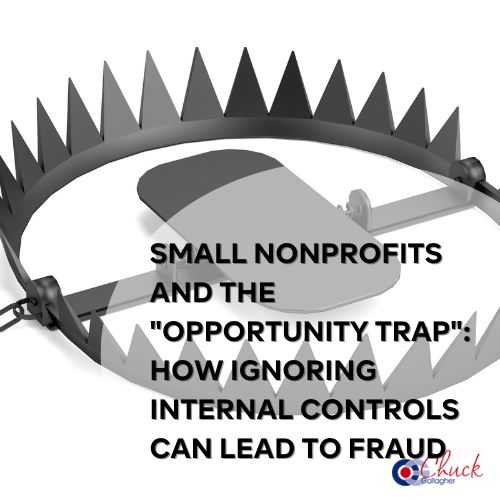 As businesses and individuals grapple with the relentless evolution of cyber threats, the urgency of addressing cybersecurity trends has become more than just a technical topic—they now hold ethical, social, and economic implications that demand immediate and serious attention. A recent article by Simplilearn sheds light on some of the most critical cybersecurity trends shaping our world today. Here, I’ll share my insights as a business ethics keynote speaker and AI expert on these trends’ ethical challenges and opportunities.
As businesses and individuals grapple with the relentless evolution of cyber threats, the urgency of addressing cybersecurity trends has become more than just a technical topic—they now hold ethical, social, and economic implications that demand immediate and serious attention. A recent article by Simplilearn sheds light on some of the most critical cybersecurity trends shaping our world today. Here, I’ll share my insights as a business ethics keynote speaker and AI expert on these trends’ ethical challenges and opportunities.
AI-Powered Cybersecurity: A Double-Edged Sword
Integrating artificial intelligence (AI) in cybersecurity is undoubtedly a game-changer. AI tools can detect anomalies, predict attacks, and bolster defense mechanisms faster than any human effort. However, as I’ve often emphasized in my keynotes, ethical questions arise:
- Transparency: Are AI-driven cybersecurity tools making decisions transparently, or are we creating a “black box” that even cybersecurity professionals can’t decipher?
- Bias and Discrimination: If AI systems are trained on biased data, they could overlook or over-prioritize certain threats, leading to vulnerabilities.
AI must be deployed responsibly and committed to ethical principles that include fairness, accountability, and transparency.
Cloud Security and Data Ethics
The migration to cloud solutions has skyrocketed, enabling flexibility and scalability. However, this shift has exposed businesses to unique vulnerabilities. Cloud breaches lead to data theft and erode trust, an essential currency in the digital age.
As an ethics speaker, I urge organizations to ask themselves:
- Are we transparent with customers about how their data is stored and protected?
- Do we have contingency plans prioritizing ethical responsibility over reputation management in the wake of a breach?
Addressing these questions proactively can make the difference between damage control and prevention.
Ransomware: Pay or Not to Pay?
The Simplilearn article highlights ransomware as a top cybersecurity threat. This trend forces businesses into an ethical dilemma: Should they pay the ransom to recover their data or refuse and risk catastrophic losses?
Paying a ransom may seem like the most practical solution, but it raises concerns:
- Does paying embolden cybercriminals to target others?
- How should a business ethically balance its obligations to stakeholders, employees, and customers in such scenarios?
Organizations must have robust ethical frameworks in place before crises arise. This includes deciding under what circumstances—if any—they would consider paying ransoms and how to mitigate long-term risks. Such frameworks provide a sense of reassurance and security in the face of cyber threats.
The Growing Role of Cybersecurity Ethics Training
While technology evolves, so do human vulnerabilities. Employees remain one of the weakest links in cybersecurity. The solution isn’t just better software; it’s better training. Ethical cybersecurity training equips employees to recognize and responsibly respond to threats.
My message to leaders: Cybersecurity is not just an IT issue. It is an ethical imperative that requires buy-in across the organization. By fostering a culture of ethical vigilance, companies can protect their systems, reputation, and integrity.
Balancing Privacy with Surveillance
Cybersecurity solutions often require monitoring systems, emails, and employee activities. While such measures may be necessary, they introduce a slippery slope. How can companies protect their digital environments without crossing ethical boundaries of privacy invasion?
The key is transparency and consent. Companies must communicate what is being monitored, why it is being monitored, and how the data will be used. This builds trust and demonstrates a commitment to ethical practices.
Final Thoughts: A Call for Ethical Leadership
The trends outlined in the Simplilearn article highlight a stark reality: Cybersecurity is no longer just about technology but ethics. As cyber threats become more sophisticated, organizations must respond with tools and policies grounded in ethical principles.
In my keynotes, I often remind audiences that businesses don’t just secure their networks—they secure the trust of their customers, employees, and stakeholders. Cybersecurity must be approached with integrity and foresight as any other ethical decision.
For leaders navigating these challenges, the takeaway is clear:
Technology alone won’t save us. Ethical leadership, transparency, and a proactive approach to cybersecurity will.
What are your thoughts on these trends? Let’s continue the conversation. Share your insights and join me in exploring how ethics can guide us through the rapidly evolving cybersecurity landscape.
Read the full article on Simplilearn here: Top Cybersecurity Trends
Questions to Ponder:
- How can organizations prioritize ethical considerations in their cybersecurity strategies?
- What role should government policies play in setting ethical cybersecurity standards?
- How will AI transform cybersecurity in the next five years, and what ethical challenges will emerge?
As always feel free to offer any comments or suggestions.


